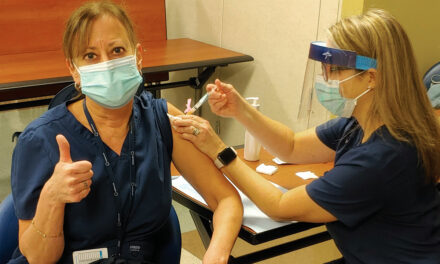As college campus tours (and applications) get underway for prospective students, parents might bring up the question of campus safety, usually with the idea of mass shootings in mind. Parents of young women, however, should be more concerned about the young men in the tour group for other more likely safety reasons.
One in five women will be the victim of sexual assault while in college, with the first 15 weeks of freshman year the most dangerous. When it comes to reporting and prosecuting sexual assault, colleges and universities must comply with Title IX, which prohibits gender discrimination at schools that receive federal funds, and regulates how institutions handle sexual violence.
A report released in May 2014 by the U.S. Department of Education (DOE) found 55 colleges and universities, including some of the nation’s most prestigious, fail to adequately protect their students when it comes to sexual assault, and are currently under investigation by the DOE for their mishandling of these cases.
New Law Tackles Ambiguity
The DOE report prompted the California Legislature to propose a new way to address sexual violence and to eliminate the ambiguity around the previous “no means no” standard that was often used by perpetrators in their own defense. On September 28 California Gov. Jerry Brown signed the Yes Means Yes bill into law, the first of its kind in the nation to provide a clear definition of sexual consent.
Other states are now following suit: On Oct. 2, New York Gov. Andrew Cuomo announced that all State University of New York schools would have to institute an affirmative consent policy within the next 60 days.
Yes Means Yes, which would apply to colleges and universities in California receiving federal aid, requires an “affirmative, conscious, and voluntary agreement” prior to sex. The “affirmative consent” cannot be given if someone is asleep or incapacitated by drugs or alcohol.
Many advocacy groups for victim’s rights and sexual violence prevention applaud the law saying it makes it more difficult for sexual offenders to argue the victim was a willing participant, and reduces the burden on the victim to prove otherwise. Critics of the law say it places undue burden on the accused.
According to the new law: “Lack of protest or resistance does not mean consent, nor does silence mean consent. Affirmative consent must be ongoing throughout a sexual activity and can be revoked at any time.”
Education about sexual assault and prevention should begin long before college, says Laura Luciano, assistant director, Office for Violence Prevention and Victim Assistance at Rutgers University. “Students entering college often lack comprehensive sexual health education and most have never had anyone talk with them about sexual violence. Colleges should educate students on these issues, but it is important that these dialogues begin in formative years and focus on communication and respect,” says Luciano.
“Although policy is an important aspect to addressing sexual violence on campuses, we know that education, awareness and prevention programming are equally important,” says Luciano. “Regardless of the language in a policy, it is critical that students understand when they have received consent for sexual activity,”
Yes Means Yes and similar campus-initiated policies undertaken by several colleges (Grinnell University in Iowa has had its own such policy since 2012), hope to create a cultural shift on college campuses that in recent years have tolerated and whitewashed everything from sexual harassment and hazing to rape. Yes Means Yes also requires colleges and universities to enact policies to address more than a dozen sexual assault and domestic violence-related situations. At Rutgers University, the Health Outreach, Promotion and Education (HOPE) program assists students in fostering positive and healthy sexual behaviors.
As a reminder of how much of a change still needs to take place on some college campuses, just this week, the Phi Delta Theta fraternity at Texas Tech University in Lubbock was stripped of its charter after an investigation of images posted online showing a “No Means Yes, Yes Means Anal” sign used during a fraternity party.
New Resources for Change
It’s time we all said enough is enough. Here are three newly launched resources to help young women, and men, lend their voice to the fight.
NotAlone.gov, a government resource for students who’ve been sexually assaulted, including what to do after an assault, victim’s rights, how to file a complaint against your school, and what to do to help a friend who’s been assaulted;
 It’s On Us, a new White House public awareness campaign aimed at ending sexual assaults on campus. Student leaders at 233 colleges and universities have already pledged their support, including Carnegie Mellon, LaSalle University, Princeton University, Temple University, University of Pittsburgh, and York College of Pennsylvania, in Pennsylvania; and Caldwell University in New Jersey.
It’s On Us, a new White House public awareness campaign aimed at ending sexual assaults on campus. Student leaders at 233 colleges and universities have already pledged their support, including Carnegie Mellon, LaSalle University, Princeton University, Temple University, University of Pittsburgh, and York College of Pennsylvania, in Pennsylvania; and Caldwell University in New Jersey.
The OTHER Freshman 15, a social media campaign by the non-profit Futures Without Violence. Students, parents, and alumni can quickly look up and email their college president (more than 1,300 are in the database) with a pre-written letter asking them to support changes necessary to ensure student safety against sexual assault, including mandatory violence-prevention education for incoming freshmen, and training for staff in the laws governing gender-based violence on campus.
A Question of Safety
So, back to the campus tour. Absent a Yes Means Yes law in every state, there are things parents and young women can do to make sure their school is also a good fit for them when it comes to their safety.
“Individuals concerned about sexual violence on campuses can look at a number of factors when determining what institution is a good fit,” says Luciano, of Rutgers University. “It’s important that a school have clear policies regarding sexual assault. In addition, the institution’s approach to prevention and community engagement on this issue is also important, so the school should offer educational opportunities for all students as well as programs and services for survivors of sexual violence.”









